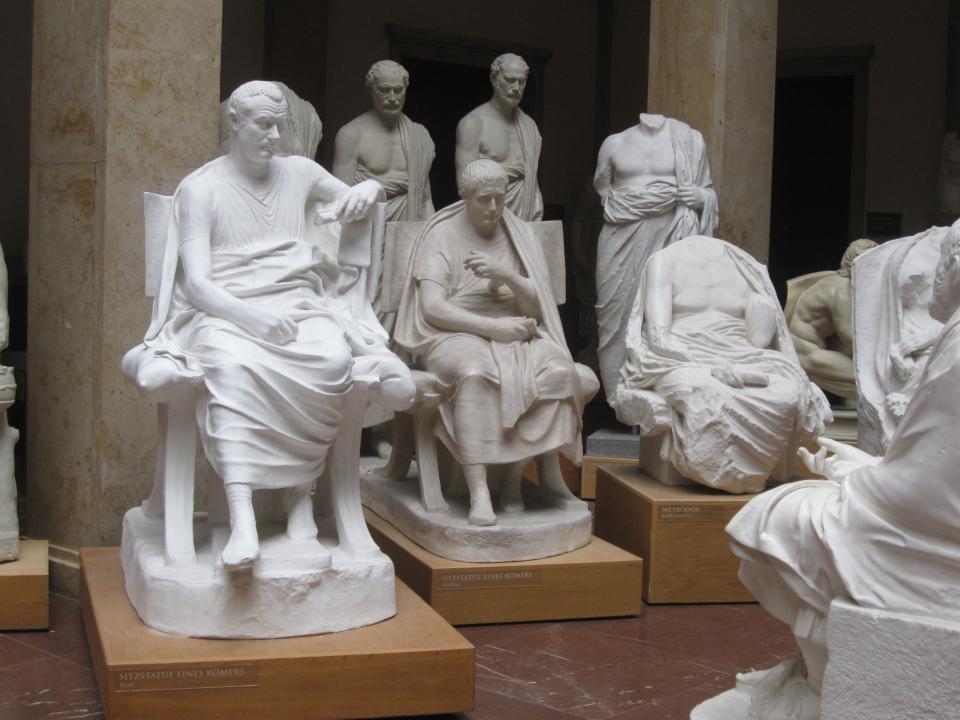About the Artist
Jacques-Louis David
Born: Paris, 30 August 1748
Died: Brussels, 29 December 1825
Nationality: French
Collection
Louvre, Paris
Documentation
David described Lictors Returning to Brutus the Bodies of His Sons in a 14 June 1789 letter to Wicar:
“So I was about to say that I am doing a painting of my own invention. It is Brutus, man and father, who has deprived himself of his children and who has returned to his home, where are brought to him the bodies of his two sons for burial. He is interrupted in his distress, at the foot of the statue of Rome, but the cries of his wife, the fear and fainting of his eldest daughter. The description is beautiful, but as for the painting, I do not dare say anything yet.”
Quoted in Robert Herbert, David, Voltaire, Brutus and the French Revolution: An Essay in Art and Politics (New York: Viking Press, 1972), 123-4.
An anonymous reviewer for Affiches praised Brutus when it was exhibited at the 1789 Salon:
“M. David, whose name suffices to attract the attention of connoisseurs, carries away all the honors again this year. His Brutus...is a composition of an absolutely new kind, one whose style is noble, severe, energetic, and one which retraces in the most suitable fashion a scene as touching as it is terrifying. The idea of placing Brutus absolutely in shadow is a stroke of genius, which helps render the figure sinister and sets off the interesting group formed by the mother and sisters of the unfortunate victims of paternal severity.”
Affiches, no. 260 (17 September 1789), 2657; Quoted in Robert Herbert, David, Voltaire, Brutus and the French Revolution: An Essay in Art and Politics (New York: Viking Press, 1972), 126.
Robert Herbert comments on the political context of Brutus at the 1789 Salon:
“The political potential of David’s picture is certain, but...no review of the Salon took up the issue. That more was not written is owing to the special circumstances of this Salon. David’s picture was more than two weeks late, and therefore unavailable to the writers of the early reviews. By the time it was shown, daily events were so momentous that the press had little time for art and reviews were short and few. Besides, years or reticence born of government pressure could not be overturned instantly. Many reviewers, for fear of offending the king, would have kept their interpretations to themselves. The tradition was to comment on art as a world quite removed from contemporary events.”
Robert Herbert, David, Voltaire, Brutus and the French Revolution: An Essay in Art and Politics (New York: Viking Press, 1972), 65.
